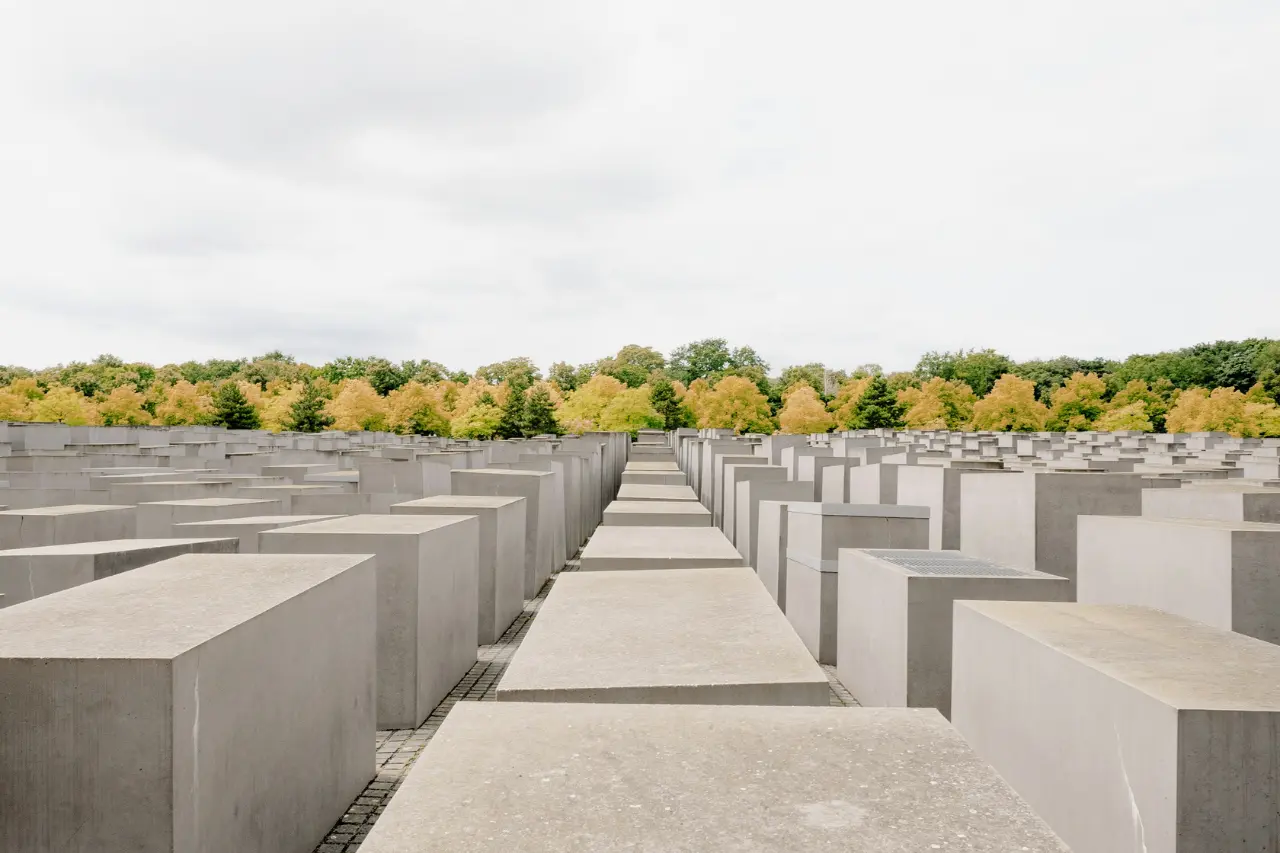80th anniversary of the end of the Second World War: Germany between worry, shock and fatigue
SINUS study in cooperation with YouGov

The Second World War ended in Germany on May 8, 1945. But how great are the current concerns about democracy and peace? With what emotions do Germans react to the topic? And how do they rate the “culture of remembrance”? SINUS-Institut, in cooperation with YouGov, investigated these and other questions in a representative online survey.
Fear of the destruction of democracy and new wars: Is history repeating itself?
Many Germans draw parallels between the present and the 1930s and 1940s: 6 out of 10 respondents (60%) feel that some current political and social developments are reminiscent of the events that led to Nazi rule. 4 out of 10 respondents (43%) even consider a repeat of authoritarian rule like the Nazi regime to be conceivable today.
Almost two thirds of respondents (64%) believe that democracy in Germany is in danger. Voters of the Left (78%), Greens (74%) and SPD (70%) in particular are of this opinion, but more than half of AfD (65%), BSW (65%) and CDU/CSU (58%) voters also express this fear. Almost two thirds of all respondents (62%) are concerned about the danger from the right, especially voters of the Left, Greens and SPD, while almost half of all respondents (47%) see a danger from the left, especially AfD voters. Union
“As united as people of different political convictions are in their concern for democracy, they think differently about why democracy is at risk,” summarizes Frieder Schmid, Account Director at YouGov. "This shows that society in Germany is also divided along political lines. This is another reason why appeals to voters to save democracy don't really work: all camps see democracy at risk, but draw different conclusions from this."
From the point of view of the population, there are clearly identifiable reasons why more people than before are currently voting for parties that represent radical or extreme positions: Migration and refugee policy (76%), dissatisfaction with the government (69%) and Islamist attacks in Germany (60%) are at the top of the list. The role of social media is also viewed particularly critically: More than three quarters of respondents (77%) believe that social media contributes to a reinforcement of populist or extremist statements.
A majority of Germans surveyed (59%) expressed a concrete fear of a third world war breaking out soon. However, only one in five respondents (20%) would be prepared to defend Germany as a soldier in the event of war. Men are more likely (30%) than women (10%), and approval is also higher among young respondents (18 to 29 years: 26%, 30 to 39 years: 24%).
The Second World War remains an emotional and complex topic
Even 80 years after the end of the Second World War, the topic still moves Germans in many different ways: In an aided multiple-choice question, respondents most frequently feel shock (43%), depression (36%), fear or interest (19% each) when they think about the topic. Defensive attitudes are much less common, such as annoyance (17%), distance (10%) or paternalism (6%).
The historical assessment of the end of the war is complex: 45% of respondents see May 8, 1945 more as a liberation for Germany, 27% feel both a defeat and a liberation, 15% see the end of the war more as a defeat. The remaining 13% did not say. The blame for the destruction of Germany during the war is clearly placed on the National Socialists (75%).
“Culture of remembrance” between fatigue and strengthening democracy
The debate about Germany's role in the Second World War is polarizing and is causing “remembrance fatigue” in parts of the population: a third of respondents (34%) think that there is too much talk about it in Germany. Slightly fewer (29%) consider the level to be just right, while just under a quarter (23%) believe that too little is said about it. The remainder did not say.
Comparable tensions are also evident when it comes to dealing with remembrance: on the one hand, the majority of respondents (57%) agree that we look too much at the dark chapters of German history. On the other hand, half (50%) affirm that there must never be a “final cut” and that the memory of Germany's role must be kept alive. 4 out of 10 respondents are convinced that the “culture of remembrance” strengthens our democracy (41%).
Values more important than age and education: memory as a question of social milieu
The way people deal with the “culture of remembrance” is unevenly distributed in society and is more closely linked to people's values and lifestyles than to socio-demographic factors such as gender, age or education. This is revealed by the analysis in the Sinus-Milieus social model, which divides the German population into ten “groups of like-minded people” based on their values, lifestyles and social situation.
Dr. Silke Borgstedt, Managing Director of SINUS-Institut, explains: "The Post-Materialist Milieu is the committed educational elite of our society. People in this milieu are very much in favor of an ongoing critical examination of history and see “remembrance culture” as a moral project - with the aim of actively drawing consequences from it, both politically and personally." In contrast, the Nostalgic Middle Class milieu, the harmony-oriented lower center of Germany, shows a great distance to the “culture of remembrance”. “In this milieu, a permanent confrontation with the dark chapters of history is often perceived as a burden and an imposition - not so much due to a lack of historical awareness or ignorance, but rather as an obstacle to a positive collective self-image,” says Dr. Borgstedt.
Confrontation, identity and responsibility between public relevance and private distance
For many Germans, the Second World War is primarily a topic of public discourse and less relevant in everyday private life: for one in two respondents (49%), the topic is present in the public sphere (e.g. in the media, politics or social debates), but in their personal everyday life the topic only plays a role for one in five respondents (20%). This difference can also be found in questions of identity: 67% agree that the Nazi era still shapes Germany's self-image today, but only 27% see it as a formative force for their self-image as a citizen of Germany.
With regard to future responsibility, a differentiated assessment is again evident: a majority (55%) agree that Germany bears a special moral responsibility for peace and cooperation in the world due to its past in the Second World War. However, respondents are almost unanimous (88%) that future generations should not be held responsible for what happened during the Second World War.
A look at Austria: more openness to coming to terms with the past, similar concerns about the future
People in Austria are somewhat more open to dealing with their history. Representative data from the SINUS sister institute INTEGRAL shows: 35% of respondents in the neighboring country think that too little is said about their country's role in the Second World War (vs. 23% in Germany), while only 24% think that too much is said about it (vs. 34% in Germany).
The populations of both countries share similar concerns about the future: 55% of respondents in Austria are afraid that a third world war will soon break out (vs. 59% in Germany), and 16% would defend their country as a soldier in the event of war (vs. 20% in Germany).
Methodological Note
The data for this survey is based on online interviews with members of the YouGov panel who agreed to participate in advance. For this survey with YouGov Surveys, a total of 2,196 people were interviewed between March 21 and March 24, 2025. The sample was split according to age, gender, education, region, living environment, voting behavior and political interest and the results were then weighted accordingly. The results are representative of the resident population in Germany aged 18 and over.
About SINUS-Institut
SINUS Markt- und Sozialforschung GmbH, with offices in Heidelberg and Berlin, has specialised in psychological and social science research and consulting for over 40 years. SINUS develops strategies for companies and institutions that use socio-cultural change as a success factor.
A key tool is the Sinus-Milieus model - a model of society and target groups that summarises people according to their lifestyles in "groups of like-minded people". For decades, the Sinus-Milieus have been one of the best-known and most influential segmentation approaches in the German-speaking market and are available for over 50 countries.
SINUS cooperates closely with its sister companies INTEGRAL Markt- und Meinungsforschung in Vienna, Austria, and OPINION Market Research & Consulting, Nuremberg, Germany (INTEGRAL-SINUS-OPINION Group).
More Information on SINUS-Institut at www.sinus-institut.de.
Press Contact
SINUS Markt- und Sozialforschung GmbH
Tim Gensheimer
Phone: +49 (0)6221 – 80 89 – 60
Mail: presse@sinus-institut.de
About YouGov
YouGov is an international online market research and analytics technology company with the aim of providing comprehensive insights into how the world really thinks and acts.
With offices in the UK, North and South America, Europe, the Middle East, India and Asia Pacific, we have one of the largest market research networks in the world.
Above all, however, YouGov is guided by reality. Behind this is an unrivalled panel of millions of registered members in 55 countries, representing some 18 million shopping trips and millions of interlinked data points. Our unique approach to recruiting and nurturing our panel, combined with our state-of-the-art technology platforms, enables us to deliver real-world, real-time insights that lead to better decisions and a competitive advantage for our clients.
As innovators and pioneers of online market research, we have an excellent reputation as a reliable source of accurate data and insights. Proof of this is that media worldwide regularly refer to YouGov data and we are consistently one of the most quoted market research organisations in the world.
YouGov / Research Reality
Further information can be found at www.business.yougov.com/de
Press Contact
YouGov Deutschland GmbH
Anne-Kathrin Sonnenberg, PR Lead Mainland Europe
Phone: +49 (0) 221 420 61 – 444
Mail: presse@yougov.de

